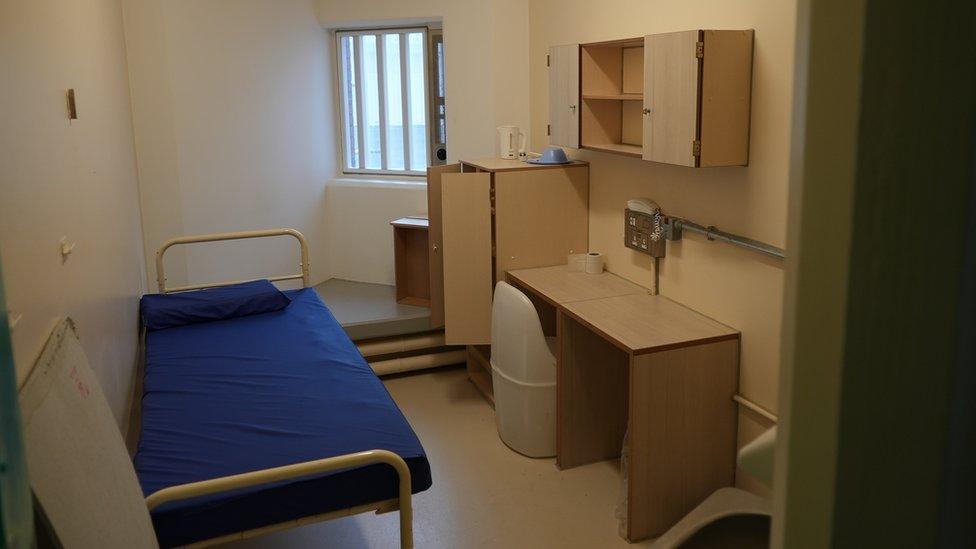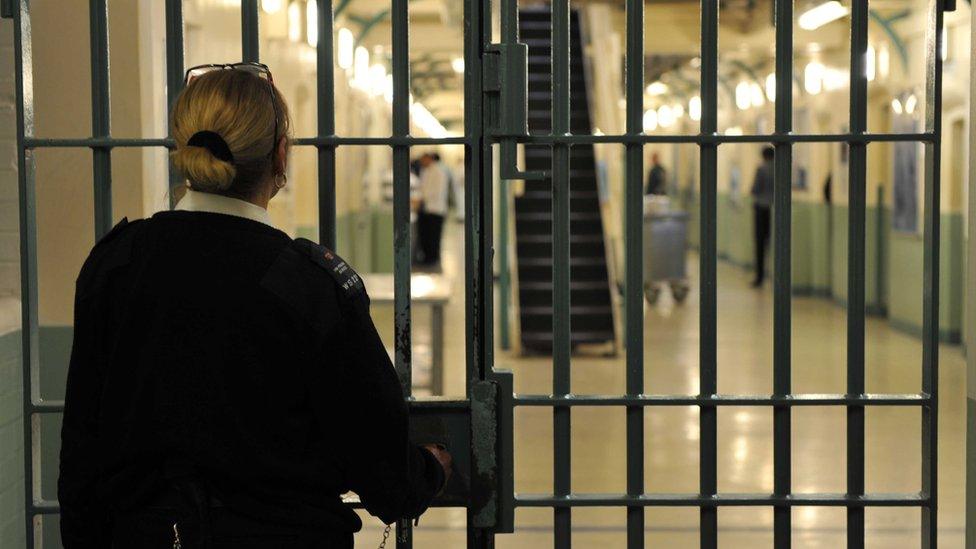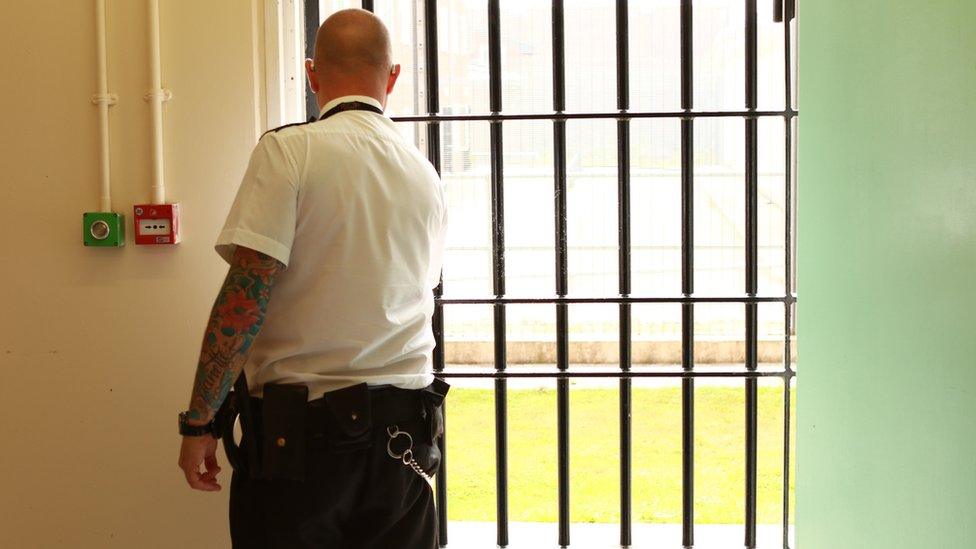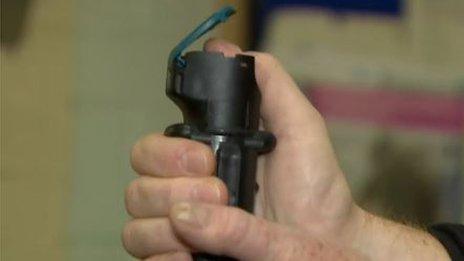Prison terrorism: Warnings over failure to stop radicalisation
- Published

Cell in HMP Woodhill Separation Centre
The prison service has failed to recognise the dangers Islamist gangs and convicted terrorists pose inside jail, a report warns.
The independent reviewer of terrorist legislation, Jonathan Hall QC, said prisons must not provide opportunities for militants to plan new attacks.
But the service had "lost its role in the national endeavour to reduce the risk of terrorism".
The Ministry of Justice said it was committed to isolating radicalisers.
More than 200 inmates are in prison after being convicted under terrorism legislation.
A similar number convicted of other offences are considered a terrorist risk.
'No-go area'
Mr Hall's report, Terrorism in Prisons, was commissioned after a recently released prisoner Usman Khan killed Saskia Jones and Jack Merritt at Fishmongers' Hall, London Bridge, in November 2019.
The impact of Islamist groups in prison had been underappreciated, Mr Hall said.
And the discussion of religion, and Islam in particular, had become a "no-go area" for prison staff.
Rather than tackling Islamist gangs in prisons, staff sometimes use the leaders or "emirs" to help maintain good order, the report says.
Prisoners had even tried to exclude staff from Friday prayers or imposed conditions such as staff removing shoes.
Mr Hall also found prisoners being excluded from kitchens unless they avoided certain foods.
There was no national "dashboard" for highlighting where Islamist gangs were active or on the rise in the prison system, he said.
'Hateful beliefs'
After an earlier review, the prison service built three separation centres, prisons within prisons where the most influential radicalisers could be kept away from the other inmates.
The three centres, at HMP Frankland, HMP Woodhill and HMP Full Sutton, have 28 places.
But only 15 inmates have ever been in one - partly because of the complicated process of referring prisoners to them and the fear of challenges, after some argued it would breach their right to a private life under the Human Rights Act.
Deputy Prime Minister and Justice Secretary Dominic Raab said this was one of the reasons for his proposed Bill of Rights.
He told BBC Radio 4's Today programme some prisoners "will poison the well, they will radicalise if they're left in general population, and they will ultimately recruit more terrorists".
The deputy PM said £1.2m was being spent to "beef up" the teams which identify extremists who should be moved into separation centres.
He also wants to increase the number of places in close-supervision centres in England and Wales, where the most violent prisoners are held, from 50 to 60.
In his report Mr Hall warned that "public confidence in the criminal justice system is shaken if terrorism occurs in prison or if people enter prison only to come out more dangerous".
"HM Prison and Probation Service's real-life encounters with terrorist ideology and violence over the past 15 years ought to make staff more confident that their goal is legitimate and not Islamophobic," he added.
Mr Hall said it was important that Counter Terrorism Policing got more involved in investigating terrorist offending behind bars. He was concerned that some offending in prison might get lost in "a patchwork of responsibility".
He said changes might need to be made to terrorism legislation. For example, prisoners who display homemade Islamic State group flags in their cells are not committing offences, because the legislation says it is only illegal if done in a "public place."
Related topics
- Published7 December 2021

- Published20 October 2020

- Published13 June 2020
